Neurology Residency Program

 Program Director: K. Douglas Pugar, DO
Program Director: K. Douglas Pugar, DONumber of Positions: 12
ACGME Accreditation Status: Continued Accreditation
Mission:
The Neurology Residency at Kettering Health Dayton is a comprehensive four-year program that accepts three residents per year into the program. Our community-based program is dedicated to providing excellence in neurological care to the city of Dayton and the surrounding suburban and rural communities. The neurology residents are directly involved with patient care at all of the Network's hospitals and free-standing emergency centers. The residents also manage patients in the ambulatory setting both in their urban continuity of care clinic and in the faculty's private practice. Osteopathic principles will be applied in our approach to a patient's overall evaluation and care. Following the completion of residency training through our department, the resident will be prepared to assess and manage patients with a wide variety of medical disorders of the central and peripheral nervous system. The resident will be able to perform and appropriately interpret electrophysiological testing to include electromyography, electroencephalography and evoked potentials. They will be skilled at the use of botulinum toxin as it relates to the specialty of neurology as well as a variety of nerve blocks. First line involvement with the stroke service is mandatory with extensive training in telemedicine. Clinical research is ongoing both in the ambulatory setting and in the hospitals. Appropriate referrals will be made to other specialties and an emphasis will be placed on co-management. The ultimate goal of our training program is to provide the resident with the tools necessary to enter practice after graduation and provide neurological care for the entire community. If desired, the resident is well prepared to continue their education in any fellowship of their choosing.The Neurology Residency at Kettering Health Dayton is a comprehensive four-year program that accepts three residents per year into the program.
The residents receive extensive training during their time on the inpatient neurology service which encompasses Kettering Health Dayton and Kettering Health main Campus. When on the service, the resident provides neurologic consultation and management as well as admitting patients directly to the neurology service. They manage patients on the general floors as well as the intensive care unit utilizing the expertise of other specialists in the institutions. They provide acute stroke evaluation on the floors and through the emergency room at the bedside during the day and via telemedicine overnight. The on-call resident also covers telemedicine consultations (stroke) overnight for all the hospitals and freestanding emergency departments in the Kettering Health Network. On an outpatient basis the resident follows their own patients in the Cassano Neurology Clinic which is part of Kettering Health Dayton. This helps to meet the need of the indigent population in the inner city of Dayton. They also spend the second half of their training program evaluating and managing outpatients in the faculty's private practice at multiple locations in the suburban Dayton area and in rural Preble County. As part of their outpatient and inpatient practice, they learn how to properly interpret electroencephalograms and perform EMG/NCS. Toxin therapy for headache and dystonia as well as nerve blocks are also taught to the residents. The goal of the above training is to enable the resident to provide a comprehensive neurological service to a city the size of Dayton both on an ambulatory and inpatient basis. This includes consultation, management and electrodiagnostic evaluations. Emphasis is placed on working as a team with other healthcare professionals as well as with the community in which they reside. When the resident completes the course of training they are capable of going out into practice. They are more than adequately prepared to enter subspecialty training should they choose.
Block Diagram (opens in new tab)
The resident's neurology training begins with the PGY 1 year. This is a preparatory year for the trainee which has a heavy emphasis on internal medicine. The resident will have rotations in general internal medicine, cardiology, critical care, emergency medicine and osteopathic manipulative medicine. There will be 4 months spent on the neurology inpatient service and 1 month on sleep medicine. Hospital coverage will be a part of experience. All these rotations will be at Kettering Health Dayton and Kettering Main Campus. The PGY 1 resident will do a one-month rotation in psychiatry. The PGY 1 the resident will begin seeing patients in the neurology continuity of care clinic at Cassano Health Center.
The PGY 2 year is an immersion in hospital neurology. The resident is assigned to run the inpatient services at either Kettering Health Dayton (350 beds) or Kettering Health Mainn Campus (500 beds). Responsibilities include a supervising PGY 1 neurology resident, admissions to the service, consultations and an active role in the stroke team to include telemedicine. Procedures include diagnostic as well as therapeutic lumbar punctures. The resident will be in charge of teaching rotators on the service, which include medical students, internal medicine as well as psychiatry residents.
In the second half of the PGY 2 year there is a required 2 month rotation on the epilepsy service. Here the resident will learn to interpret electroencephalograms and manage patients with epilepsy. Ambulatory EEG, intraoperative monitoring and an epilepsy monitoring unit are all integral to this rotation. Upon completion of the rotation, the resident is expected to continue to interpret EEGs on a scheduled basis for the remainder of their training. There will also be rotations in the ambulatory setting at the Dayton Center for Neurological Disorders. The resident will begin following other residents at the Neurology Clinic at Cassano Health Center. They will continue to see patients in the continuity of care clinic at Cassano Health Center.
The PGY 3 year begins with a 3-month required rotation on the EMG service. During this rotation the resident will focus on peripheral neurology and learn how to perform electrodiagnostic testing. EMG clinics will be regularly scheduled for the resident upon completion of the rotation in order to further refine their diagnostic skills.
A 3-month rotation in child neurology is completed during the second half of the PGY 3 year in the Neurology Department at Children's Hospital in Dayton. There is exposure to inpatients as well as the ambulatory patients with neurological disease. There is opportunity to interpret pediatric EEGs. Monthly, throughout the residency, the child neurologists host a child neurology journal club, which focuses on issues that have relevance to the adult neurologist. There is also a monthly didactic session in child neuroradiology, also hosted by Children's Hospital.
The resident will continue to gain experience in adult neurology the remainder of the PGY 3 year in the ambulatory as well as hospital settings. Hospital rotations may include one of the other four institutions the faculty covers, as well as at the primary teaching hospitals. These rotations allow the resident to have more autonomy and work one on one with the faculty members. Elective rotations are encouraged and are arranged individually with the program director. Rotations through the hospital network include sleep medicine, memory disorders, epilepsy, neurosurgery, neuroradiology, neuro-immunology, vascular/interventional neurology, OMM and PM&R. The resident can spend time in the Neuro-rehabilitation & Balance Unit. Time is allotted to learn the use of Botox for a variety of disorders.
During the PGY 4 year, the resident embarks on a 3-month rotation in neuropathology. This will serve to enhance the understanding of neurological disease at the basic science level. During this rotation there is time for ongoing exposure to outpatients, EEG and EMG. Time is allotted for study and senior project preparation.
The remainder of the senior year places a heavy emphasis on outpatient neurology and practice management skills. The residents are involved in the business of medicine from their first day however; this becomes more important as the resident nears the end of the program and prepares to enter practice. Exposure to this is gleaned from the faculty's private practice. There is also required hospital coverage, with the resident being expected to function at the level of an attending neurologist. Increased responsibility for interpretive EEG & sleep studies. Autonomy with telemedicine for acute stroke will be emphasized.
The resident's neurology training begins with the PGY 1 year. This is a preparatory year for the trainee which has a heavy emphasis on internal medicine. The resident will have rotations in general internal medicine, cardiology, critical care, emergency medicine and osteopathic manipulative medicine. There will be 4 months spent on the neurology inpatient service and 1 month on sleep medicine. Hospital coverage will be a part of experience. All these rotations will be at Kettering Health Dayton and Kettering Main Campus. The PGY 1 resident will do a one-month rotation in psychiatry. The PGY 1 the resident will begin seeing patients in the neurology continuity of care clinic at Cassano Health Center.
The PGY 2 year is an immersion in hospital neurology. The resident is assigned to run the inpatient services at either Kettering Health Dayton (350 beds) or Kettering Health Mainn Campus (500 beds). Responsibilities include a supervising PGY 1 neurology resident, admissions to the service, consultations and an active role in the stroke team to include telemedicine. Procedures include diagnostic as well as therapeutic lumbar punctures. The resident will be in charge of teaching rotators on the service, which include medical students, internal medicine as well as psychiatry residents.
In the second half of the PGY 2 year there is a required 2 month rotation on the epilepsy service. Here the resident will learn to interpret electroencephalograms and manage patients with epilepsy. Ambulatory EEG, intraoperative monitoring and an epilepsy monitoring unit are all integral to this rotation. Upon completion of the rotation, the resident is expected to continue to interpret EEGs on a scheduled basis for the remainder of their training. There will also be rotations in the ambulatory setting at the Dayton Center for Neurological Disorders. The resident will begin following other residents at the Neurology Clinic at Cassano Health Center. They will continue to see patients in the continuity of care clinic at Cassano Health Center.
The PGY 3 year begins with a 3-month required rotation on the EMG service. During this rotation the resident will focus on peripheral neurology and learn how to perform electrodiagnostic testing. EMG clinics will be regularly scheduled for the resident upon completion of the rotation in order to further refine their diagnostic skills.
A 3-month rotation in child neurology is completed during the second half of the PGY 3 year in the Neurology Department at Children's Hospital in Dayton. There is exposure to inpatients as well as the ambulatory patients with neurological disease. There is opportunity to interpret pediatric EEGs. Monthly, throughout the residency, the child neurologists host a child neurology journal club, which focuses on issues that have relevance to the adult neurologist. There is also a monthly didactic session in child neuroradiology, also hosted by Children's Hospital.
The resident will continue to gain experience in adult neurology the remainder of the PGY 3 year in the ambulatory as well as hospital settings. Hospital rotations may include one of the other four institutions the faculty covers, as well as at the primary teaching hospitals. These rotations allow the resident to have more autonomy and work one on one with the faculty members. Elective rotations are encouraged and are arranged individually with the program director. Rotations through the hospital network include sleep medicine, memory disorders, epilepsy, neurosurgery, neuroradiology, neuro-immunology, vascular/interventional neurology, OMM and PM&R. The resident can spend time in the Neuro-rehabilitation & Balance Unit. Time is allotted to learn the use of Botox for a variety of disorders.
During the PGY 4 year, the resident embarks on a 3-month rotation in neuropathology. This will serve to enhance the understanding of neurological disease at the basic science level. During this rotation there is time for ongoing exposure to outpatients, EEG and EMG. Time is allotted for study and senior project preparation.
The remainder of the senior year places a heavy emphasis on outpatient neurology and practice management skills. The residents are involved in the business of medicine from their first day however; this becomes more important as the resident nears the end of the program and prepares to enter practice. Exposure to this is gleaned from the faculty's private practice. There is also required hospital coverage, with the resident being expected to function at the level of an attending neurologist. Increased responsibility for interpretive EEG & sleep studies. Autonomy with telemedicine for acute stroke will be emphasized.
Didactics are a vital part of the program. Here is an overview of the academic schedule:
- Clinical Neurology (weekly): This 1.5 hour session focuses on the basic science of neurology as it pertains to the clinical setting. Emphasis will be placed on anatomy, physiology and the clinical examination. The spectrum of neurological disorders will be entertained.
- EEG (monthly): Individual case studies and recording will be discussed from actual patients. Emphasis will be placed on identification of normal electrocerebral activity and the interface of abnormal finding with the clinical history and neuropathology.
- EMG (monthly): Individual case studies will be discussed with the non-EMGers discussing the anatomy and differential diagnosis. The EMGers will discuss the methodology by which they will refine the differential and arrive at their diagnosis. Clinical management will be reviewed.
- General Neurology Case Presentation (monthly): The residents will present a case to be discussed from the molecular level to the clinical setting in which they present. This is an informal discussion meant to refine the resident's diagnostic approach. This session will be proctored by one or more of the faculty.
- Journal Club (monthly): This critical review of the current literature will involve recent developments as well as areas of controversy in the field.
- Child Neurology Journal Club (monthly): This conference will be hosted by the child neurology service at Children's Hospital and will focus on areas of relevance to adult neurologists.
- Child Neuroradiology Conference (monthly): This conference will be hosted by the neuroradiologists at Children's Hospital and will focus on cases of interest to neurology and neurosurgery.
- Adult Neuroradiology: (monthly) The resident's will improve their expertise in neuroanatomy and diagnostic interpretation of CT and MRI.
- Board Review: This series of informal discussions is led by the senior residents in preparation for taking the AOBNP or the ABPN Examination.
- OMM: Program has its initial accreditation and the program is in development.
Residents 2025-2026
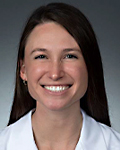
Brittney Dietz, DO
PGY 4
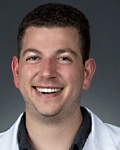
Chris Homsi, DO
PGY 4
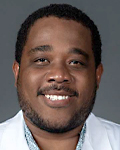
Lens Placide, DO
PGY 4

Richard Breidenstein, DO
PGY 3
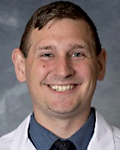
Joshua Smithers, DO
PGY 3
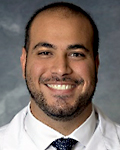
Daniel Sorial, DO
PGY 3

Lindsay DiBerardo, DO
PGY 2

Meagan Dunlap, DO
PGY 2

Noor Humayun, DO
PGY 2

Manik Arora, DO
PGY 1

Evan Barnett, DO
PGY 1

Chandrika Janumpalli, DO
PGY 1
All applications must be received through ERAS (opens in new tab).
More info regarding the Neurology Residency Program is located at:
freida.ama-assn.org (opens in new tab)
More info regarding the Neurology Residency Program is located at:
freida.ama-assn.org (opens in new tab)
Neurology
Nikki VulteePhone: 937-723-3718

